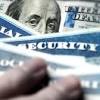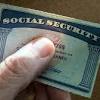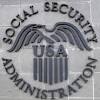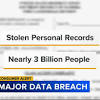Social Security breach
2024 - 8 - 14Did Hackers Steal Every Social Security Number? What You Need to Know!
Social Security Number Breach -- social security hack -- ssn leak credit freeze - dark web - data breach - identity theft - National Public Data - Social Security number - USDoD - Social Security Number Breach - social security hack - ssn leakBreaking: Hackers reportedly steal 2.9 billion social security numbers! Is yours at risk? Find out the details and how to protect yourself.
In a world where our personal information floats around like leaves on a windy day, a recent allegation has taken center stage: hackers may have stolen Social Security numbers (SSNs) of nearly three billion people. The shocking revelation came to light through a lawsuit filed by Christopher Hofmann, a California resident, who claims his identity theft protection service tipped him off about the breach. The hacking group, ironically dubbed USDoD, takes credit for the massive leak from the Florida-based background check company, National Public Data. Imagine waking up to find out that your SSN might be on sale for a handful of Bitcoins on the dark web! Not exactly the morning pick-me-up anyone needs.
According to the lawsuit, the hackers infiltrated National Public Data in April 2024, stealing sensitive data, including SSNs, from 2.9 billion records. That's right, 2.9 billion - nearly the equivalent of one SSN per human on this planet, which might be an exaggeration, but definitely sounds dramatic. Can you picture the sheer volume of all that information? Think of SSNs as rare Pokémon, and now every hacker has caught them *all*. The information allegedly ended up on the dark web, where it's likely being sold and exchanged among those with less-than-stellar intentions.
Florida-based National Public Data, the epicenter of this alleged data quake, has not confirmed the breach. As the class-action lawsuit gains momentum, people nationwide are left wondering: was mine one of them? The incident has sparked both outrage and a scramble for cybersecurity solutions. Consumers are advised to keep a vigilant eye on their credit reports and employ identity theft protection services. What's even more chilling is the realization that, despite the best efforts of everyone involved, your SSN might already be in the hands of cyber miscreants.
So, how do you know if your SSN was stolen and what should you do? It's time to channel your inner detective. Start by checking if any suspicious activities have sprung up in your financial accounts. Consider freezing your credit and setting up fraud alerts. Engaging with identity theft protection services can serve as your defense line against any misuse of your personal data. Remember to stay informed and proactive.
Did you know? According to Statista, in 2020, the average cost of a data breach globally was $3.86 million. Frauds involving SSNs can lead to financial and emotional turmoil, but the good news is that the impact can be mitigated with prompt action and vigilance.
Fun fact: The first Social Security number was issued in 1936 as part of the New Deal. Initially, it was not intended as a unique identifier. Fast forward to today, and it's safe to say this nine-digit number has seen more drama than a season of your favorite reality TV show!

Hackers may have stolen the Social Security numbers of all ... (CBS News)
The allegation arose in a lawsuit filed earlier this month by Christopher Hofmann, a California resident who claims his identity theft protection service ...

2.9 billion records, including Social Security numbers, stolen in data ... (USA TODAY)
The hacking group USDoD claimed it had stolen personal records, including Social Security info, of 2.9 billion people from National Public Data.

Social Security Numbers Reportedly Stolen in Hack: What to Know (The New York Times)
Hackers may have gained access to the private information of millions of people from a background check company called National Public Data.

Every Social Security number leaked? What we can VERIFY about ... (WTSP.com)
Florida-based National Public Data has not confirmed the alleged leak. The allegations stem from a class-action lawsuit. Author: Josh Sidorowicz. Published: 11: ...

Social Security number hack: How to know if number stolen (Newsweek)
National Public Data had sensitive data for nearly three billion people stolen by a hacking group.

Was your Social Security number leaked to the dark web? Here's ... (ZDNet)
A recent breach involving nearly 3 billion personal records included many SSNs. Was yours one of them? Here's how to find out and what to do next.

Your Social Security number may have been stolen by hackers. How ... (Austin American-Statesman)
According to a lawsuit, USDoD claimed it had allegedly stolen personal records of 2.9 billion people in or around April 2024.

2.9 billion people may have had Social Security numbers, other ... (CNBC)
Experts say freezing your credit is the "number one piece of advice" if you think your personal financial data has been compromised.

Hackers may have stolen your Social Security number: Here's how ... (New York Post)
A cybercriminal group which calls itself USDoD uploaded a large database titled "National Public Data" to a dark web forum, it was alleged.

6 things to know about the Social Security number hack (The Philadelphia Inquirer)
A massive number of Social Security numbers and other personal information could be compromised following a data breach. Here's what we know and how to keep ...

Hearing about leaked Social Security numbers? Don't panic. (The Washington Post)
Stolen data from a background check company may expose millions of Social Security numbers, a lawsuit claims. Here's how to protect yourself.

Hackers may have stolen the Social Security numbers of every ... (ABC7 Los Angeles)
In malicious breaches, cybercriminals can use stolen data to target people with phishing messages, or by taking out loans or credit cards in their name, a ...

Steps to take to protect yourself from identity theft after massive ... (WPVI-TV)
A data breach involving billions of social security numbers has consumer advocates urgently sounding an alarm.
Explore the last week
- 2024 - 12 - 20, 20 topics across 190 articles.
- 2024 - 12 - 19, 44 topics across 558 articles.
- 2024 - 12 - 18, 41 topics across 543 articles.
- 2024 - 12 - 17, 34 topics across 360 articles.
- 2024 - 12 - 16, 44 topics across 494 articles.
- 2024 - 12 - 15, 45 topics across 721 articles.
- 2024 - 12 - 14, 37 topics across 470 articles.